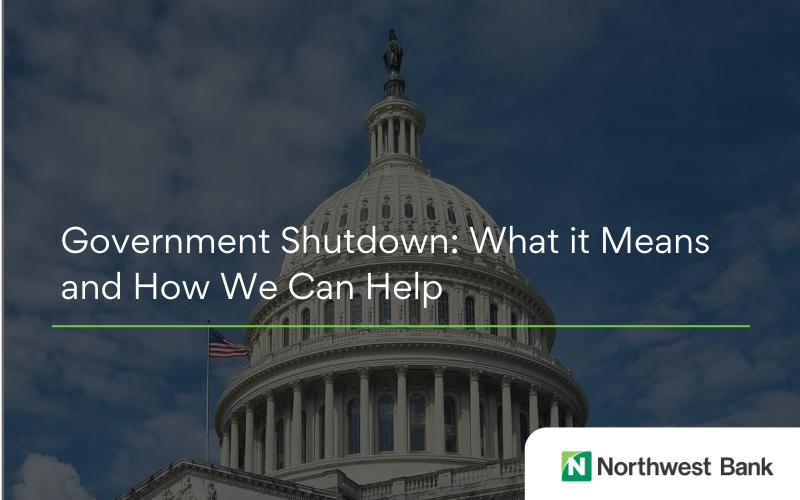How to Buy a House in Indianapolis
A step-by-step guide for first-time and returning buyers
Key Takeaways
- Tight inventory and an oversupply of buyers mean homes in Indianapolis often sell within days, so buyers must be financially ready and decisive.
- Starting the homebuying process three to six months in advance gives you time to improve your credit, hone your budget and qualify for assistance programs.
- An experienced lender and realtor will help you avoid common missteps, pinpoint neighborhoods that match your lifestyle and ensure you don’t purchase a home that strains your budget.
The roar of the Indy 500 isn’t the only sound reverberating across Indianapolis these days. The city’s housing market is also making a lot of noise.
“There’s very limited inventory,” says Anne Carlin, a mortgage loan originator with Northwest Bank who works with buyers across Indianapolis and southern Indiana. “If a home is priced right, it’s five or six days on the market, tops. And in many cases, you’ve got multiple offers and quick market movement.”
The competitive landscape in Indianapolis reflects broader national trends. Indeed, many homeowners feel locked into the extremely low interest rates they obtained in 2020 and 2021. “You’ve got people sitting on 2% or 3% rates who don’t want to trade up for a 6.5% loan,” Carlin says. “That’s reducing inventory across the board.”
Intense competition aside, people still need to buy homes. Indianapolis is a comparatively affordable city, with a median home price of $255,000 compared to $403,700 nationally. Home prices vary considerably by neighborhood. The median home price in nearby Carmel, Indiana, for example, tops $500,000, while West Indianapolis is around $200,000.
5 steps to prepare for buying in Indy’s fast market
Gaining an edge in a market as competitive as Indianapolis requires advanced preparation, discipline and the expert guidance of an experienced lender and realtor. Follow these five steps to gain that edge:
1. Create a budget that reflects your priorities
A competitive market requires buyer focus. Carlin encourages buyers to prioritize their non-negotiables, which apply both to what they want in a home as well as the other things they value in life that cost money. “I try to learn about your lifestyle. Do you vacation a lot? Do you have kids going to college or a 16-year-old who’s going to need a car?” she says. “That helps us figure out what you can really afford and what compromises make sense.”
Understanding what matters most also helps align expectations with market realities. For example, buyers with a $300,000 budget may want to look at areas outside of high-cost neighborhoods like Carmel. “I don’t say, ‘You can’t afford Carmel,’” Carlin adds. “But I might steer you toward Fishers or other great communities that fit both your needs and your price point.”
2. Start three to six months before you plan to buy
While many buyers wait until they’ve found a house to contact a lender, Carlin says the ideal time to start is long before that — ideally three to six months ahead of a planned purchase.
“Those are my dream clients,” she says. “If someone tells me, ‘I’m getting married in six months and thinking about buying,’ I can look at their credit, help them pay off debt and get them into a much better financial position.”
Early planning also helps avoid surprises later, especially around credit scores. Many buyers don’t realize that something as small as consistently maxing out a credit card — even if it’s only $500 — can bring down a score significantly. “You might be able to boost your credit score 50 or 60 points just by paying that off,” Carlin explains. “And a higher score means better rates, better programs and more affordability.”
3. Build your budget before you shop
Falling in love with a house is great, but only if you can afford it. It’s not so great when your desire for a home overwhelms your budget. That’s why Carlin encourages buyers to develop a budget before they look at a single home.
“It’s hard to crush someone’s dream, but the truth is, people often overestimate what they can afford,” Carlin says. Rather than seeking as large a loan as they can qualify for, Carlin recommends a conservative approach that anticipates inevitable unexpected expenses, like medical expenses, car repairs or new appliances. “I want people to buy a home and still be able to live their lives, not feel stuck or stressed,” she says.
4. Assemble an expert team
Buying a home is a team sport. But it’s up to the buyer to find experienced professionals who can guide them through budgeting and help understand which neighborhoods fit their priorities. Start by working with a lender who knows the local market and can connect you with knowledgeable real estate agents.
“I have a few really great agents I refer clients to,” Carlin says. “They understand the process and the purchase agreements inside and out.” Importantly, realtors also know about the quality of schools, access to green space and the arts and what distinguishes one neighborhood from another. That local knowledge can help buyers be more efficient in their home search.
5. Be ready to move fast
Comprehensive preparation before searching for a home helps avoid missteps, like buying a property you can’t afford without giving up things in your life that are important to you. But preparation is also what enables you to move quickly and confidently when you do find a home that matches your budget and priorities.
Education about all aspects of the home purchase process is especially important for first-time homebuyers, Carlin says. “They don’t know what happens after they sign a purchase agreement, who orders the appraisal or how inspections work,” she says. “I walk them through it all and I’m their advocate the whole way.”
Northwest Bank also offers several programs that make homeownership more financially accessible. From Indiana’s down payment assistance to reduced fee options for first-time buyers, the right guidance can help buyers secure the home they want without busting their budget. “People think they need 20%, but that’s not true,” Carlin says. “There are great options if you give yourself the time to prepare and get educated.”
Connect with a Northwest Bank Mortgage Loan Officer today and take the first step toward buying a home in Indianapolis.




